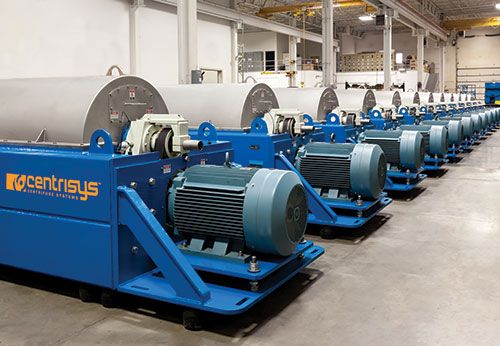Sustainable Technology Helps Wastewater and Sludge Treatment Facilities Convert Waste to Value
Published on by Water Network Research, Official research team of The Water Network in Technology
Centrisys/CNP earns acclaim from Frost & Sullivan for increasing the efficiency of the THP process in sludge treatment with its PONDUS TCHP. The technology helps wastewater and sludge treatment facilities pursue a more sustainable future through a waste-to-value strategy.

Image source: Centrisys
Based on its recent analysis of the North American sludge treatment market, Frost & Sullivan recognizes Centrisys/CNP with the 2019 North American Product Leadership Award for its PONDUS TCHP. With this product, Centrisys/CNP allows the North American sludge treatment industry to not just accelerate the sustainability of anaerobic digestion, but also significantly enhance the thermal hydrolysis process (THP) process.
Centrisys/CNP, through its licensing agreement to distribute PONDUS TCHP in North America, offers the market a more productive process alternative by replacing steam with safe caustic soda. The simplified system uses only a heat efficiency exchanger, progressive cavity pumps, and a reactor with no moving parts," said Seth Cutler, Frost & Sullivan Principal Consultant. "Through a chemical reaction, the caustic soda breaks down cell membranes in the sludge as effective as steam. As a result, PONDUS TCHP offers operational simplicity, avoids further personnel training, and decreases the process carbon footprint."
TCHP reduces solids volumes, which boosts the availability of digester capacity and the quality of outputs in biogas and solids. Biogas can be captured and turned into heat, while the solid cake can be turned into fertilizer, soil amendments, or nutrients. This way, the product augments economic gains, environmental care, and offers communities a better future.
PONDUS TCHP originated in Germany and is currently is used in six installations in Europe and one in China. Centrisys/CNP introduced TCHP in North America through an agreement with the sludge processing facility in Kenosha, Wisconsin in 2015. The TCHP process was integrated into the existing facility and was up and running within 15 months. This is faster than most conventional THP installations in North America.
"Centrisys/CNP's PONDUS TCHP can decrease the viscosity of thickened sludge up to 80 percent. This is critical, as it enables up to 50 percent reductions in volume for anaerobic digesters and frees up capacity for additional handling," noted Cutler. "The produced sludge in the digesters is enhanced and can generate up to 30 percent more biogas, increasing value resource recovery. Furthermore, biosolids dewatering can result in improvements of up to 5 percent in processing, and polymer consumption can be shrunk by up to 20 percent. The process also lowers foul odors in the facility and foaming in anaerobic digestion."
These outstanding production and cost efficiencies give Centrisys/CNP a huge competitive advantage over traditional sludge treatment companies and position it for further growth.
Each year, Frost & Sullivan presents this award to the company that has developed a product with innovative features and functionality that is gaining rapid market acceptance. The award recognizes the quality of the solution and the customer value enhancements it enables.
Frost & Sullivan Best Practices awards recognize companies in a variety of regional and global markets for demonstrating outstanding achievement and superior performance in areas such as leadership, technological innovation, customer service, and strategic product development. Industry analysts compare market participants and measure performance through in-depth interviews, analysis, and extensive secondary research to identify best practices in the industry.
Source: PR NewsWire
Media
Taxonomy
- Treatment
- Solid Waste Treatment
- Sludge Separation
- Liquid Waste Treatment
- Sludge Treatment
- Sludge Management
- Sludge Drying
- Waste Water Treatments
- Technology
- Wastewater Treatment